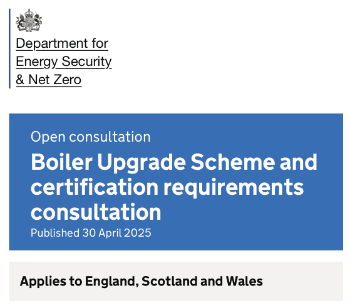Carbon Takeback Obligation CTBO
Contents |
[edit] Introduction
The Carbon Takeback Obligation (CTBO) is an initiative that requires producers and importers of fossil fuels to develop methods to store a portion of the CO2 created by their activities. This proportion will increase over time. The purpose is to provide incentives for producers to keep CO2 permanently out of the atmosphere. The commitments by producers to CTBO are voluntary.
[edit] Holding producers accountable for CO2
The CTBO policy initiative was introduced by the report ‘Carbon Takeback Obligation - A Producer Responsibility Scheme on the Way to a Climate Neutral Energy System’, published in January 2021 and written by Margriet Kuijper Consultancy, De Gemeynt and Royal HaskoningDHV.
According to Margriet Kuijper, project leader of the study: "A CTBO stipulates that the net CO2 emissions from this inevitable use of fossil fuels will go to zero in a timely manner".
CTBO is similar to incentives that have been adopted in other areas of production, where manufacturers are given the physical and financial responsibility of managing the disposal of products that contain substances that are considered harmful to human health and the environment.
[edit] CTBO and other initiatives
It is believed that the CTBO could be paired with the Government policy of Contracts for Difference (CfDs) to produce a marketplace where companies could trade certificates of storage. It is believed that the outcome of this partnership would encourage the development of carbon capture and storage (CCS) technologies as companies are given incentives to seek to lower their costs associated with the CTBO, and could see the UK becoming a world leader in carbon trading.
The report explains, " A CTBO will generate an incentive supplementary to the effect of the emissions trading system (ETS). Businesses and sectors subject to this system are required to purchase and pay for emission rights. CCS will reduce their emissions, which means they will need fewer rights. However, they will incur expenses for CO2 capture and storage. A CTBO will create a demand for CO2 (and thus put a price on CO2) because producers and importers of fossil carbon compounds will need to reserve CO2 to be stored (CSUs). Thus, the CTBO and ETS schemes can be enforced alongside one another (as can other instruments, for that matter)."
As of 2021, CTBO is in the recommendation stage.
[edit] Related articles on Designing Buildings Wiki
- Aligning net zero with the levelling-up agenda.
- Carbon capture and storage.
- Carbon neutral contract.
- Contracts for Difference.
- Decarbonise.
- Using CO2 to make construction products and materials.
- Zero Carbon by 2050 - pipe dream or possibility?
[edit] External resources
- Margriet Kuijper Consultancy, De Gemeynt and Royal HaskoningDHV, Carbon Takeback Obligation - A Producer Responsibility Scheme on the Way to a Climate Neutral Energy System.
Featured articles and news
Licensing construction in the UK
As the latest report and proposal to licence builders reaches Parliament.
Building Safety Alliance golden thread guidance
Extensive excel checklist of information with guidance document freely accessible.
Fair Payment Code and other payment initiatives
For fair and late payments, need to work together to add value.
Pre-planning delivery programmes and delay penalties
Proposed for housebuilders in government reform: Speeding Up Build Out.
High street health: converting a building for healthcare uses
The benefits of health centres acting as new anchor sites in the high street.
The Remarkable Pinwill Sisters: from ‘lady woodcarvers’ to professionals. Book review.
Skills gap and investment returns on apprenticeships
ECA welcomes new reports from JTL Training and The Electrotechnical Skills Partnership.
Committee report criticises UK retrofit schemes
CIOB responds to UK’s Energy Security and Net Zero Committee report.
Design and construction industry podcasts
Professional development, practice, the pandemic, platforms and podcasts. Have we missed anything?
C20 Society; Buildings at Risk List 2025
10 more buildings published with updates on the past decade of buildings featured.
Boiler Upgrade Scheme and certifications consultation
Summary of government consultation, closing 11 June 2025.
Deputy editor of AT, Tim Fraser, discusses the newly formed society with its current chair, Chris Halligan MCIAT.
Barratt Lo-E passivhaus standard homes planned enmasse
With an initial 728 Lo-E homes across two sites and many more planned for the future.
Government urged to uphold Warm Homes commitment
ECA and industry bodies write to Government concerning its 13.2 billion Warm Homes manifesto commitment.
From project managers to rising stars, sustainability pioneers and more.
Places of Worship in Britain and Ireland, 1929-1990. Book review.






















